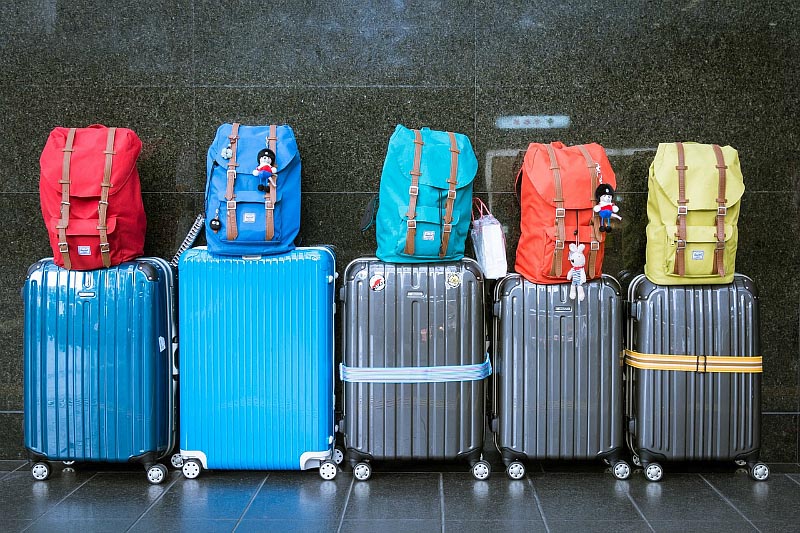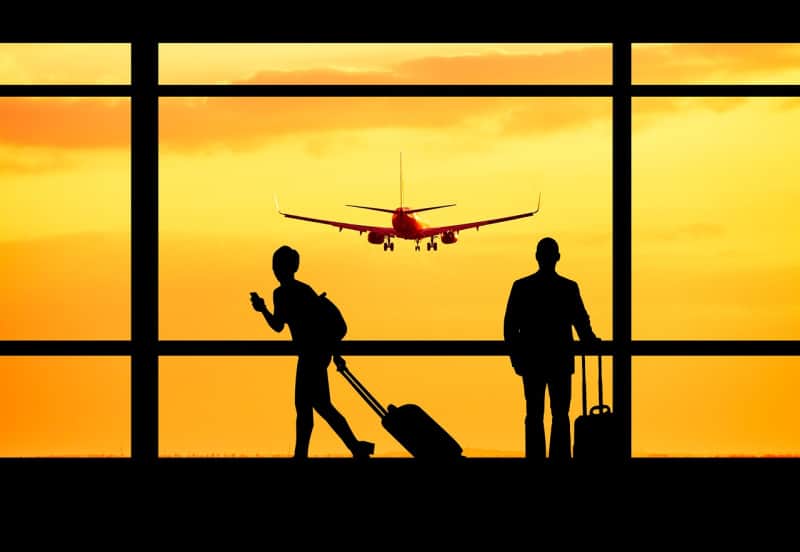Travel can be an incredible journey that opens your eyes to new cultures and experiences, but its physical demands may leave your body feeling fatigued after returning from its travels. Physical therapy provides relief in this case. Here are six reasons post-travel physical therapy may be useful after returning home from an expedition or weekend getaway.
This post may contain affiliate links. If you click through and buy, TravelingInHeels will get a small commission. Thank you for your support!
Post-Travel Physical Therapy
Table of Contents
You just returned from your dream vacation – new sights, delicious food, and unforgettable experiences. But as the excitement fades, you might be feeling achy, stiff, or even dealing with a nagging injury. Don’t let post-travel pains put a damper on your return home! Physical therapy can be the key to a smooth transition back to your routine.
In this article, we’ll explore six reasons why scheduling a post-travel physical therapy appointment can be a game-changer. From tackling jet lag and fatigue to recovering from travel stiffness and soreness, post-travel physical therapy can help you bounce back feeling refreshed and rejuvenated.

Post-Travel Physical Therapy Helps Recovery from Adventure Activities
Travel often entails engaging in various adventure activities, such as hiking, kayaking, and zip-lining. Although these pursuits can be exciting and fulfilling, they significantly strain muscles, joints, and the body. Physical therapy can be invaluable in aiding recovery from such adventures.
With manual therapy, strength training, and rehabilitation exercises designed to address discomfort or injury areas in your body, physical therapy helps promote faster healing while relieving pain. By targeting muscle recovery and joint stability as core elements for successful healing, physical therapy helps ensure you return to daily activities with increased strength and reduced risk of long-term injury.
Read More: Guide to Adventure Travel for Over 50
Correct Poor Posture From Carrying Luggage

Carrying heavy luggage, such as a backpack, suitcase, or duffel bag, can lead to poor posture and subsequent discomfort or pain. Heavy bags carried unbalanced can put undue strain on our backs and shoulders, often leading to misalignments of the spine and shoulders and tightness of muscles. Physical therapy is invaluable for correcting postural problems caused by luggage carrying. Physical therapists can assess posture and identify imbalances caused by luggage transport.
Through tailored exercises and stretches, experts can assist in strengthening the muscles needed to support proper alignment, alleviate tension, and promote a healthy posture. They may also offer advice on ergonomic ways to carry luggage for added protection from future postural problems.
Manage Travel Induced Stress
Traveling, while exhilarating, can also be a source of immense anxiety. Long flights, unfamiliar places, and tight schedules increase our stress levels. Post-Travel physical therapy plays a crucial role in alleviating travel-induced anxiety. Techniques such as therapeutic massage and controlled breathing exercises can ease tension and promote relaxation.
In addition, physical therapists teach mindfulness meditation techniques that foster mental and emotional well-being, thus creating a holistic solution to ensure travel remains a positive and enriching experience for all concerned parties involved.
Addressing the Effects of Unusual Sleeping Conditions
Uncomfortable sleeping environments such as airplanes, multiple time zones, or unfamiliar beds can significantly interfere with your overall well-being. It is therefore important that we consider their effects. Physical therapy may help alleviate these effects. Sleep disruption, back and neck pain and overall discomfort may all be mitigated through physical therapy treatments. Physical therapists can recommend exercises and stretches designed to address stiffness and pain caused by sleeping positions that don’t provide sufficient support. Physical therapy professionals can also advise you on proper sleep hygiene practices, such as pillow placement and mattress support, to enhance the quality of restful slumber. By providing immediate and long-term solutions for unusual sleeping conditions, physical therapy helps ensure that travel does not compromise your physical wellbeing.
Treat Jet Lag and Improve Circulation

Jet lag is an increasingly prevalent problem among travelers crossing multiple time zones, often leading to disrupted sleep, fatigue, and difficulty focusing. Physical therapy offers effective strategies for addressing jet lag’s effects.
Light exercise and stretching routines can help reset your internal clock and enhance overall well-being. Participating in gentle yoga sessions or taking short, brisk walks, may energize both body and mind. This also helps facilitate more rapid acclimation to a new time zone. Maintaining good circulation during long flights or extended periods of immobility is also key for combating jet lag. It can also reduce swelling, discomfort, and, in extreme cases, deep vein thrombosis (DVT).
Physical therapists may suggest simple in-flight exercises such as ankle pumps, seated marches, and neck stretches to keep blood flowing efficiently during flight. These movements can easily be performed while sitting, taking up minimal space.
By alleviating jet lag symptoms and encouraging healthy circulation, pre- and post-travel physical therapy plays an instrumental role in making the travel experience healthier and more enjoyable.
Prevent and Treat Injuries Sustained in Collisions
No matter how minor the bump may seem, collisions while traveling can often result in various injuries ranging from whiplash, bruises, and sprains to fractures or concussions, if severe enough. Physical therapy plays an important role in both preventing and treating injuries.
Physical therapists tailor exercise programs to strengthen muscles and improve flexibility to reduce risk, ultimately aiding in avoiding injuries. Physical therapists specialize in pain management, rehabilitation exercises, and mobility improvement to facilitate faster and more effective healing after injury.
A personal injury lawyer may also be necessary if someone was negligent, with physical therapy providing important evidence in court cases against others.
Post-Travel physical therapy offers an effective solution to counteract the physical wear and tear caused by travel, including any aches, pains, or strains incurred while adventuring abroad.
By investing in your physical well-being through therapy, not only are you speeding up recovery, but you’re also creating opportunities for future adventures.
So the next time your return from a journey leaves your body feeling exhausted, consider scheduling a physical therapist session, your body will thank you.

